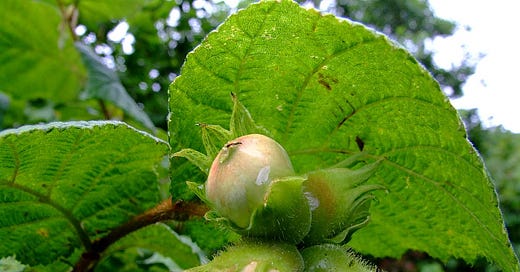Ever heard someone called a big muck-a-muck? Been to the town of Tukwila? Crossed the Skookumchuck River on I5, boated in Cultus Bay, played at Alki Beach, or hiked to Olallie Lake?
Those words are all vestiges of Chinook Jargon (and before that, Salish words the jargon drew from). Chinook Jargon is the Pacific Northwest’s trade pidgin, used throughout the 1800’s to aid communication between Salish, French, and English speakers. It has about five hundred words, drawn from French, English, and several Salish languages.
Its purpose was basic communication across language barriers, but I figured, why not use it to write poetry?
Getting nerdy
So every couple of years, I sit down and throw as many Chinook Jargon words at my students as they are willing to mit’late[1] for.
We learn that a big muck-a-muck is a big food – ie. a big shot who can throw a big feast. Tukwila means hazelnuts, a hint at what was lost to build big box parking lots in that river valley. Skookum means strong and also demon, while chuck means water – so the Skookumchuck is no mild river. Cultus is useless, which gives me a guess of the depth of Cultus Bay. Alki means presently. Olallie Lake is, as promised, surrounded with berry bushes.
We get a sense of how you can use just five hundred words to say many, many things. Pil means red. Pil pil is blood. Chikamin means metal or money. Pil chikamin is gold or copper – red metal.
We see how one English word can stand in for several: smoke for smoke, cloud, and fog. Stone for rock, bone, and horn. Stick for stick, log, and tree.
We enjoy the hy-iu[2] onomatopoeia: tum tum for heart, piu piu for skunk, wau-wau for speaking and words. We enjoy the potential for insults: Mesika[3] cultus wau-wau.
And poetic
Then, after passing out Chinook Jargon dictionaries (downloadable, I ask them to write something in Chinook Jargon, then translate it back to English – or vice versa. We don’t worry too much about the grammar, because my sense is the jargon speakers didn’t either. Everything is stripped down to a bad parody of thoughts. My students sometimes struggle with finding the words to fit their thoughts into, but to me that is the excitement of it. How do you say I will fly to Mars someday when there is no word for Mars, or even planet? Well, there is a word for ball (le bal), and one for sky (koo-sagh). And we know pil means red. So a sentence forms: Nika ka-wak pil koo-sagh le bal alki. I fly red sky ball presently.
Other times, I have them make maps and label everything in Chinook Jargon instead of English.
And maybe we think about how much easier it is to talk about fighting than being calm in Chinook and why that might be, and also why it is we sound like stereotypes of Indians from old Westerns and the kind of limited cross-language communication that spawned those stereotypes. Or maybe we think it’s really funny that you can say le bal le sac, or that o-poots means butt (or as the 1863 dictionary puts it, posteriors). To each their own, right?
[1] sit
[2] many
[3] you




